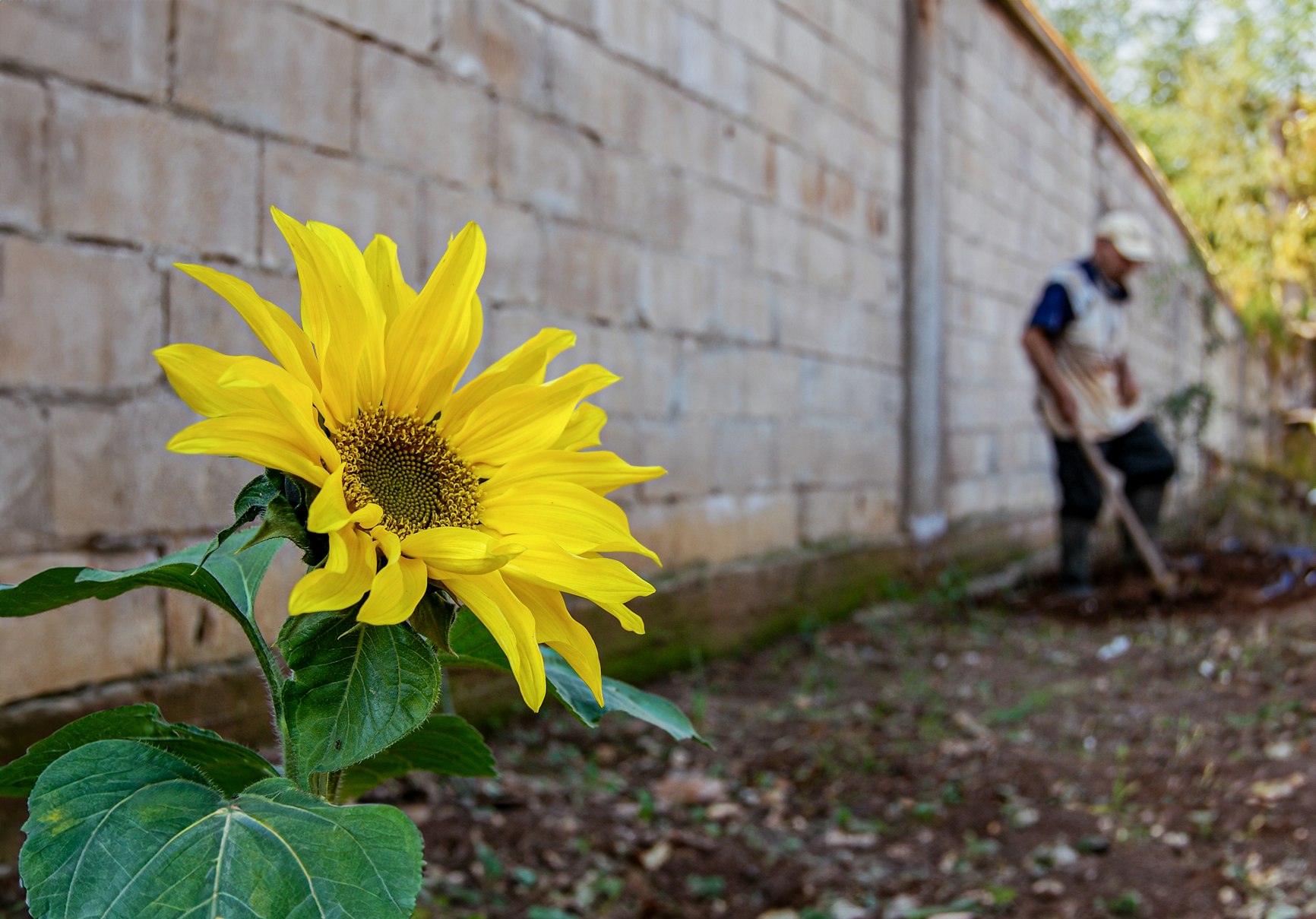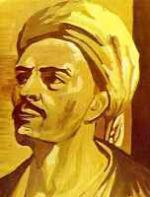A single word can brighten the face
by Yunus Emre
English version by Kabir Helminski & Refik Algan
A single word can brighten the face
of one who knows the value of words.
Ripened in silence, a single word
acquires a great energy for work.
War is cut short by a word,
and a word heals the wounds,
and there’s a word that changes
poison into butter and honey.
Let a word mature inside yourself.
Withhold the unripened thought.
Come and understand the kind of word
that reduces money and riches to dust.
Know when to speak a word
and when not to speak at all.
A single word turns the universe of hell
into eight paradises.
Follow the Way. Don’t be fooled
by what you already know. Be watchful.
Reflect before you speak.
A foolish mouth can brand your soul.
Yunus, say one last thing
about the power of words —
Only the word “I”
divides me from God.
 — from The Drop That Became the Sea: Lyric Poems of Yunus Emre, Translated by Kabir Helminski / Translated by Refik Algan
— from The Drop That Became the Sea: Lyric Poems of Yunus Emre, Translated by Kabir Helminski / Translated by Refik Algan

/ Image by Ahmad Bader /
A single word can brighten the face
of one who knows the value of words.
This is one of my favorite poems by Yunus Emre, but I have never really written up a good commentary to accompany it. Perhaps it is because it is a poem about words, the singular power of words, or the power of a singular word — and I don’t want my meditative ramblings to take away from the poem itself. It says it all so beautifully.
Ripened in silence, a single word
acquires a great energy for work.
I love that line. I have been busy with my day job of late, and I haven’t been resting in deep meditation as much as I would like. The outer world has required a lot of energy from me lately. Yet I have still managed to catch moments of silence gently flowing beneath the activity. That’s where the ripening happens.
War is cut short by a word,
and a word heals the wounds,
and there’s a word that changes
poison into butter and honey.
I think this verse is the heart of the poem for me. I read it over and over again.
In my Hawaii days, at the same time I was doing all that fasting and meditating in a cave, I was also running an email chain called the Peace Pages. No website, just by word of mouth, but it grew quickly to a significant circulation in the couple of years that it existed. It usually consisted of summaries of overlooked international news stories, often with a few comments for context, as a more holistic counterbalance to the fixed perspectives we were receiving in US news reports at the time. A major focus of the Peace Pages was the terrible situation in Israel/Palestine and my instinct that the suffering of the Palestinian people could become a flashpoint for a widening conflict on the world stage. This was about 25 years ago.
In the morning I would awaken, often lightheaded from fasting the day before, then go for a walk barefoot into the nearby forest where I had found a small cave. I would sit in meditation in the cave for several hours. When I returned, I might eat something light – at that time I was eating mainly island fruit and sprouted foods – then I would turn on my computer, scour the early Internet for news stories, and put together the Peace Pages email to send out.
In some ways, that work was an early template for what would become the Poetry Chaikhana.
Those emails helped me to gain a clearer, more expanded perspective on what was really happening in the world as I began to formulate my own response as a person aspiring to genuine compassion. It always meant empathy with those who are struggling and suffering, never seeing anyone as less than human or a less valuable human than myself. It also, challengingly, meant I had to recognize the suffering of even those who impose suffering on others. The black-and-white world of newsprint became, instead, a complex tapestry of shades and tones.
It also taught me that every conflict comes down to a breakdown in communication. Slow, simmering suffering, accented by explosive, often cruel action, is always about thwarted communication. Groups of people refusing to listen to the needs and concerns of other groups of people.
We tell ourselves that war and fighting are either about control of limited resources or sometimes we just want to say that the other side is “crazy” or, at least, unreasonable. But, when we really look, the clash usually has to do with the stories we tell and how we have tried to fix those stories in concrete. Conflict is often the result of having an overly rigid story about who we are and what our future should be, while trying to eliminate with a vengeance anyone with a different story.
The word that heals, the word that stops war is lost amidst our shouts of accusation.
We can never let allegiance to our personal or national stories be greater than our commitment to compassion and humanity. Let history become messy. Let our stories adapt and evolve to make room for other stories. We don’t need the triumphant fulfillment of our personal stories, what we need, and secretly crave, is the fulfillment of our humanity… even when our stories become something new and our future becomes unknown.
When we drop the terrible purpose of our stories and restore our hearts, that is when we recall the word that heals.
I think will say no more today, and let Yunus have the final word–
Yunus, say one last thing
about the power of words —
Only the word “I”
divides me from God.
Recommended Books: Yunus Emre
Continue Reading »
 — from The Holy Algorithm, by Ayaz Angus Landman
— from The Holy Algorithm, by Ayaz Angus Landman


